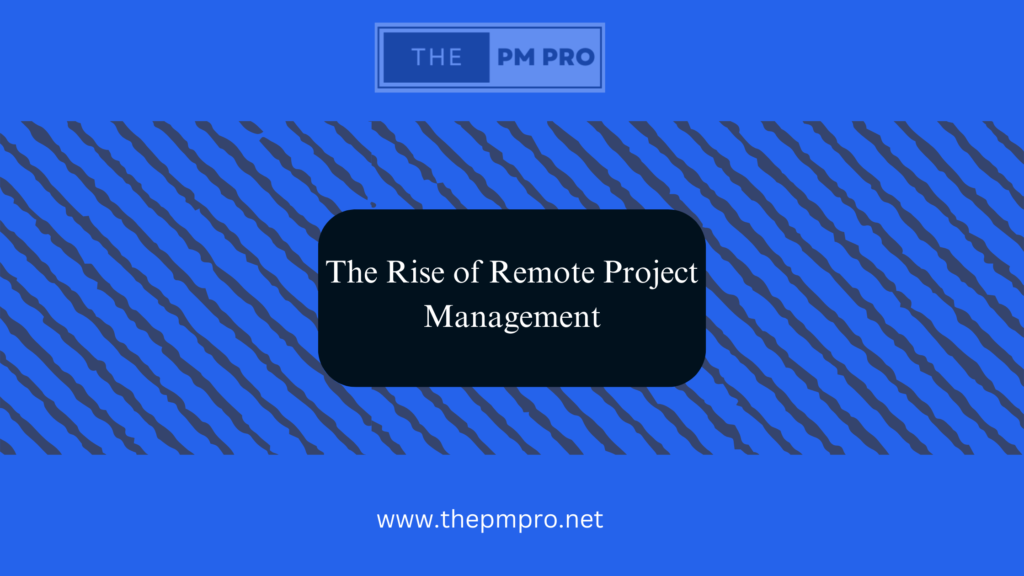This article will provide you with tips to eliminate the challenges in remote project management. In only a few steps, you will esure that your remote project is successfully delivered.
In a rapidly changing business environment, remote work has become highly prevalent, prompting a shift in project management practices.

As organizations adapt to the advantages of remote teams, project managers are applying innovative strategies and adapting to challenges to ensure the success of their projects. Remote project management comes with an exclusive set of hurdles and opportunities to ensure the success of the project, demanding a reimagination of traditional methods. This article provides insights and explores remote project management best practices to help you navigate future collaborations.
The Advantages of Remote Project Management
Remote project management comes with several advantages that increase productivity and foster a culture of flexible work environment. They include:
Global Pool of Talent
Project managers can get access to a global pool of talent with remote work that allows them to gather diverse teams with expertise and specialized skills from different geographical locations.
Higher Efficiency
Remote work does not require team members to commute, so they dedicate the commuting time to project-related activities. Remote project management software and tools streamline task allocation, communications, and progress tracking, increasing efficiency.
Increased Work-Life Balance
Remote project management enables team members to work in a productive and comfortable environment. This promotes a healthy work-life balance and leads to reduced burnout and increased job satisfaction.
Eliminating Challenges in Remote Project Management
While remote project management has several benefits, it also comes with a set of unique challenges that you must address. These challenges include:
Communication and Collaboration
Project managers must develop clear channels for communications, and leverage chat platforms, video conferencing, and project management tools to ensure collaboration and alignment of team members towards a common goal.
Trust and Team Cohesion
In remote teams, trust building is challenging among team members. Project managers must develop a positive team culture, facilitate activities for team building, and encourage open communication to increase trust and cohesion.
Time Zone Differences
Remote teamwork with different time zones can affect team collaboration and lead to schedule conflicts. Project managers should set realistic deadlines and establish clear guidelines that ensure seamless workflow, effective coordination, and ensure coordination.
Best Practices for Remote Project Management
Below are the best practices for remote project management:
Clear Alignment of Goal
Ensure that project expectations and goals are communicated and defined to all members. Develop milestones that are measurable to track project progress accurately.
Effective Communication
Conduct regular communications and keep everyone informed about the project challenges, updates, and accomplishments. Leverage tools to collaborate, enable open communications, and conduct virtual meetings to maintain engagement and transparency.
Agile Project Management
Agile project management methodologies such as Kanban and Scrum can enhance adaptability and flexibility in remote project management. Frequent progress, iterative planning, and faster decision-making enable project teams to respond to different circumstances in a short time.
Results-Oriented Approach
Focus on outcomes rather than micromanagement. Trust your team members to deliver results and empower them to take ownership of their work. Utilize key performance indicators (KPIs) to measure success and ensure accountability.
Virtual Team Building
Conduct virtual activities for team building that strengthen relationships and foster camaraderie among members of remote teams. This includes virtual breaks, online games, and video conferences to develop a sense of community.
Remote Project Management: Steps for Success
Remote project management is evolving and offers opportunities for organizations to discover a global pool of talent, embrace flexibility in work, and enhance productivity. However, successful remote work requires a proactive approach to foster team cohesion, eliminate communication barriers, and ensure project success in the remote work era.
The Rise of Remote Project Management- FAQs
How does remote project management work?
Remote project management involves working with remote teams from different locations to lead and coordinate projects. It includes the use of digital tools to keep every team member on track and work together regardless of location.
Can project managers work anywhere in the world?
While traditional methods of work are still valuable, remote work has become a game changer for individuals and businesses.
What makes a virtual team successful?
Set expectations for the role of team members, document which group makes decisions, and involve fewer people in key decisions when you communicate them to all.
Why are virtual teams difficult to manage?
The key challenge to managing remote teams is fostering unity in the team when they work apart. Teams that work in different locations experience lower trust levels and a higher number of conflicts than teams that work in the same location. Most of the issues arise from communications.
Do Follow our Industry Trends Section for more relevant articles


